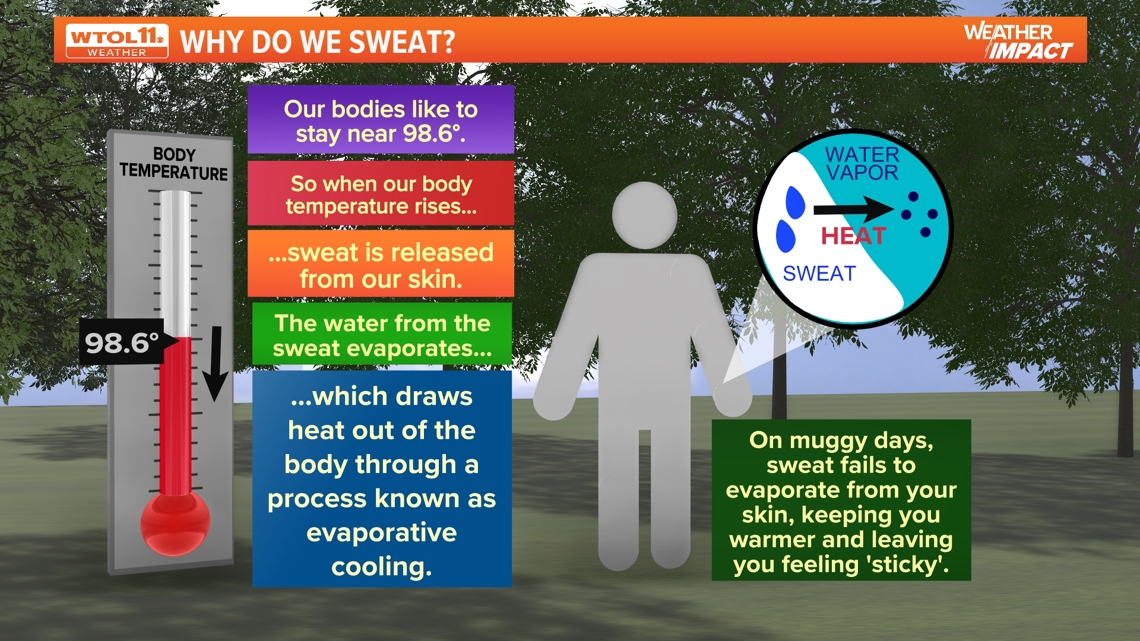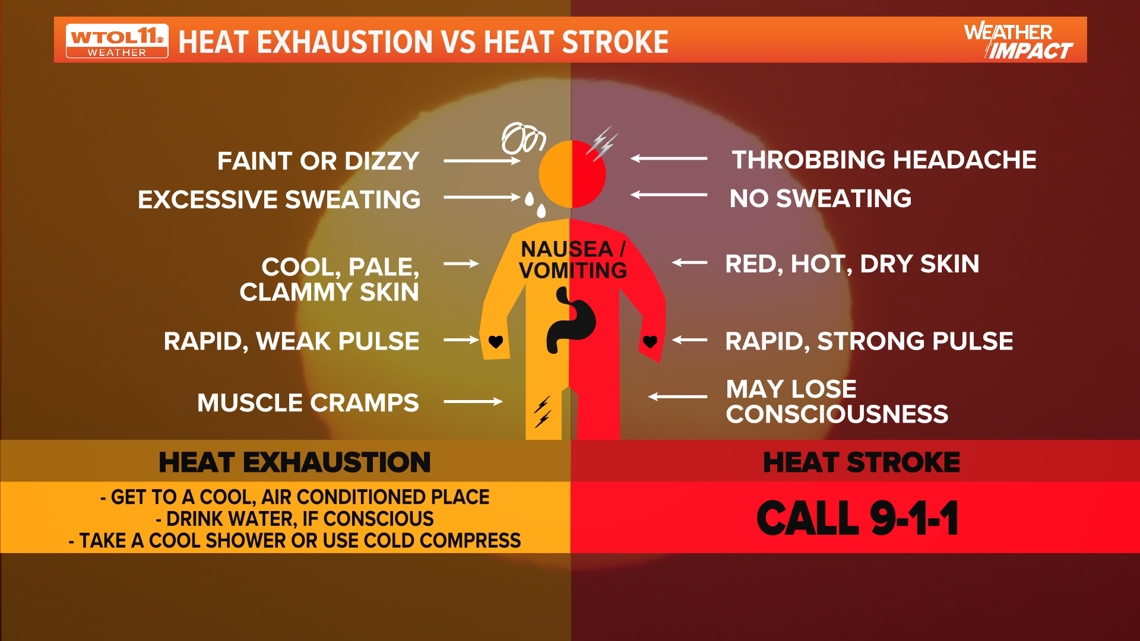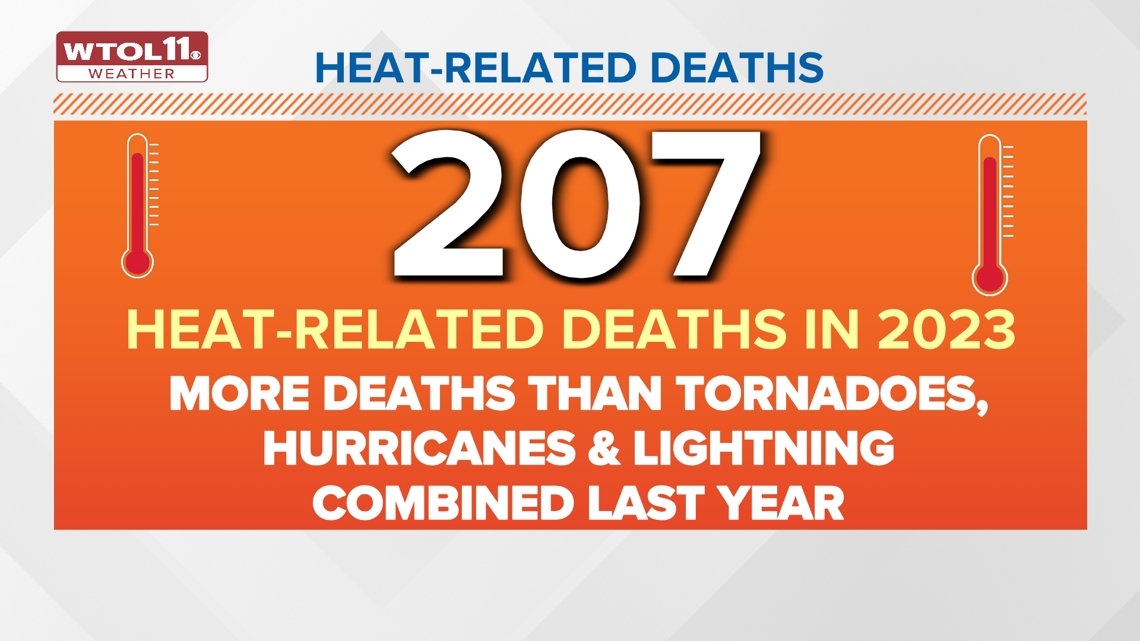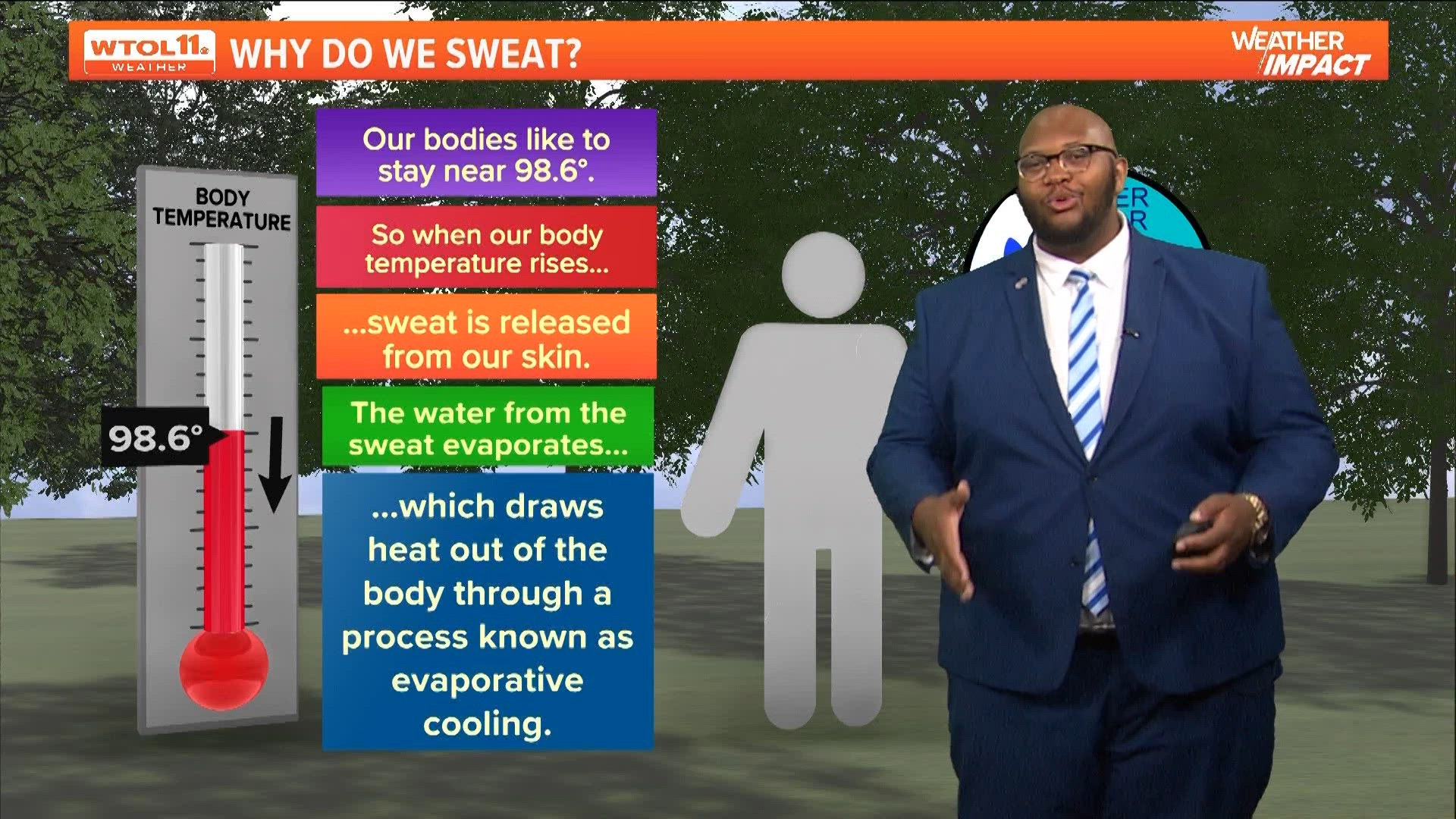TOLEDO, Ohio — We all know the feeling. Walking out the door on sizzling summer days and feeling the sweat dripping down your face before you have even made it to your car.
But why does it happen?
Why do we sweat?
Our bodies like to stay consistently near 98.6 degrees whether it is winter or summer. In the summer season, the impacts from summer heat are common but can be concerning in extreme conditions.
According to Houston Methodist Medicine, "as soon as your body's internal temperature starts rising, your hypothalamus (a small region in your brain) tells eccrine sweat glands distributed all over your body that it is time to start cooling your body by producing sweat."
This process of cooling through evaporation is not as easy as this sweat just drips off you. Sweat must evaporate off your skin, relying on a principle of physics called heat of vaporization. The heat of vaporization is the amount of energy it takes to evaporate sweat off your skin. That energy removes the heat from your body and keeps you cool when evaporation occurs.


On hot and muggy days like the ones we will inevitably see this summer season, sweat is an important process to keep our bodies cool and us safe from the heat. If the process of evaporation fails due to dehydration, the skin will feel warmer, clammy and sticky. This is a sign of a more serious health condition that you need to be aware of.
Heat Exhaustion vs. Heat Stroke
When you are soaked in sweat due to spending an extended time outside on a sweltering hot summer day, it is exceedingly important to always stay hydrated. If proper hydration is not considered during extreme heat, risks such as heat exhaustion and stroke could set in with little advanced warning.


Heat Exhaustion: Symptoms that you will feel when heat exhaustion sets in are feeling dizzy and sweating excessively. Heat exhaustion will feel like a very sudden sickness that will make you feel nauseated, along with muscle cramps. At this point, you need to act immediately.
Following these steps will help recover from heat exhaustion:
Seek relief in a cool air-conditioned area.
Rehydrate with plenty of water immediately.
A cool shower, wet towel or cold compress can assist in moderating your body temperature back to normal.
Heat Stroke: A condition that can be an extremely serious and dangerous situation that requires immediate medical attention.
During a heat stroke you may experience a throbbing headache, lack of sweating due to dehydration and finally, extreme conditions may result in losing consciousness. If any of these symptoms happen, act immediately by calling 911 to receive medical attention right away.
According to the CDC (Centers for Disease Control), heat stroke is the most serious heat-related illness. In fact, in 2023 heat-related fatalities were responsible for the most weather-related deaths across the country.
Of all weather-related deaths, heat stroke claimed more than double the lives (207 deaths) than hurricanes, tornadoes and lightning combined (103 deaths) in all of 2023.


Summer Heat Impacts
WHEN: June, July and August are meteorologically the three hottest months of the year. In our area, we reach our hottest average high of 87 degrees in the beginning of July lasting through late July.
Data has shown our climate is warming, on average our summers are over 2 degrees warmer over the past 30 years due to the change in our warming climate. As a result, heat exhaustion and heat stroke will become more likely in the years ahead, making this a threat that you need to be more alert to.
IMPACTS: Warming temperatures over time will continue to influence our Lake Erie ecosystem with more algal blooms, impacting local agriculture productivity, and heightening the chance of heat exhaustion and heat stroke, especially for those who are most vulnerable.
NEED: Stay hydrated by drinking multiple glasses of water. Experts at Cleveland Clinic recommend avoiding strenuous physical activity in hot, humid conditions, and gradually letting your body acclimate to warm temperatures over several weeks if you will have to be in hot conditions for work or sports.
Lastly, apply sunscreen periodically every 2 hours if outside for extended periods of time.
Stay up to date each and every week with the WTOL 11 Weather Impact Explainers and Breakdowns.

